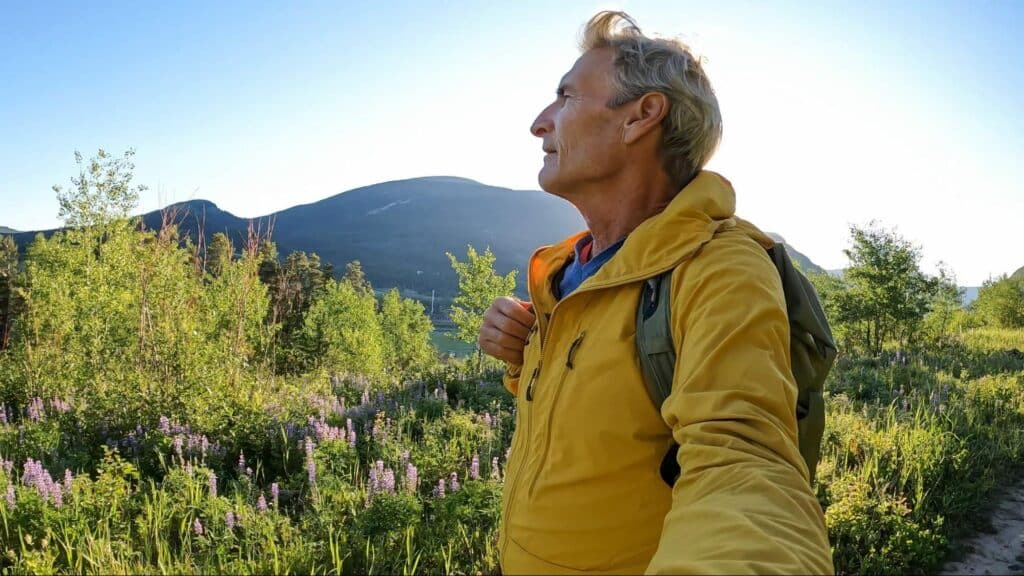Aging is often accompanied by profound reflection, as many individuals seek to uncover greater meaning and purpose in the later stages of life. Far from being a period of decline, this stage offers an unparalleled opportunity for spiritual growth and self-discovery. By nurturing the mind, body and spirit, individuals can cultivate a sense of fulfillment and well-being. Let’s explore meaningful activities that support mental, physical and spiritual wellness.

The Need for Spiritual Growth in Later Life
Later life ushers in major life transitions—retirement, shifts in identity, changes in physical ability and the loss of loved ones. While these experiences can be challenging, they also serve as a powerful invitation to explore deeper questions about existence, purpose and connection. Spiritual growth in this stage of life doesn’t necessarily equate to religious practice; instead, it can encompass cultivating a set of beliefs, values or routines that provide clarity and purpose. This growth is deeply personal, focusing on the alignment of mind, body and spirit.
By fostering spiritual growth, older adults often experience improved emotional resilience, greater satisfaction and a more optimistic outlook on life. Researchers have found that individuals who engage in meaningful spiritual or reflective practices are more likely to experience a deep sense of peace, even amidst the uncertainties of aging.
Nurturing the Mind
The quest for meaning begins with the mind—a lifelong arena for curiosity, learning and reflection. Keeping the mind active and agile can contribute to spiritual growth.
Lifelong Learning
Engaging in new learning opportunities is not just for the young. Books, classes or community programs enable older adults to explore topics like philosophy, art, memory or even spiritual traditions. This type of mental engagement broadens perspectives, deepens self-understanding and helps individuals stay connected with the world around them.
For example, participating in a study group on meditation or attending lectures on mindfulness can expose individuals to tools that enrich their inner lives. Similarly, learning a creative skill like painting, writing or music offers an avenue for self-expression, allowing the mind to bridge thoughts and emotions in meaningful ways.
Reflective Practices
Equally important is the practice of mindfulness and introspection. Journaling, meditation and gratitude exercises offer practical ways to calm a racing mind, identify priorities and gain clarity. Journaling, for instance, provides an opportunity to document insights, reflect on the past and envision hopes for the future. A daily gratitude practice—whether reciting affirmations or listing three things you’re thankful for before bed—can shift focus toward positivity and foster inner peace.
Building Connections
Social interactions also play an important role in mental stimulation. Book clubs, discussion groups and community organizations often foster deep dialogues about life and shared experiences. These intellectual exchanges nurture the mind while embedding a sense of connection and belonging.
Caring for the Body

Without physical health, it becomes difficult to fully engage in meaningful work or spiritual reflection. Nurturing physical vitality involves a thoughtful mix of movement, nutrition and rest.
Purposeful Movement
Exercise is more than a chore—it can play a meaningful role in spiritual growth. Practices such as tai chi, yoga and walking in nature emphasize mindful movement, cultivating a sense of connection between body and spirit. For example, yoga incorporates breath control and meditation to center the mind, while tai chi emphasizes balance and harmony—both metaphorical and physical.
Walking in nature offers another opportunity to engage the body in a way that feels nurturing. Strolling through a park, forest or along the beach not only promotes physical health but also fosters gratitude by immersing us in the beauty of the natural world.
Nourishing the Body with Food
Nutrition also plays a vital role in spiritual and physical well-being. A diet prioritizing whole, nutrient-rich foods can elevate energy levels and mental clarity. Some individuals find spiritual connection in the act of preparing meals, particularly when it involves mindfulness—paying attention to textures, colors and the smells of fresh ingredients.
Prioritizing Rest and Rejuvenation
Finally, rest is indispensable for physical health. Sleep allows the body to repair and the mind to process experiences. Practices such as evening yoga stretches, drinking herbal teas or establishing a calming bedtime routine can improve sleep quality, offering deeper rejuvenation and balance.
Cultivating the Spirit
Later life often involves reorganizing priorities. Taking time to reflect on core beliefs and values can help us make sense of what is truly meaningful. What legacy do you want to leave behind? What gives you joy? Older adults might find meaning in volunteering, mentoring younger generations or participating in activities that align with their beliefs, such as environmental conservation or social justice.
Building Community and Connection
Spiritual growth often flourishes in the presence of others. Joining groups that share similar beliefs, attending spiritual retreats or participating in gatherings centered on mindfulness or creative reflection can foster belonging. For some, spiritual growth also means repairing or strengthening relationships, offering forgiveness and seeking closure.
Practicing Acts of Kindness
One of the most fulfilling ways to nurture the spirit is through generosity and kindness. Volunteering within the community, donating to causes you care about or even making an effort to spread kindness in everyday interactions builds a profound sense of purpose and interconnectedness.
Integrating Mind, Body and Spirit for Growth
Reflection without action loses its focus; physical health without intention becomes mechanical; and spiritual connection without mental clarity lacks insight. Together, nurturing all three components builds a foundation for a deeply meaningful and purpose-driven life.
Making Time for Meaningful Activities
Whether it’s pursuing creative hobbies, engaging in storytelling with family and friends, practicing gratitude or simply spending time with loved ones, meaningful activities serve as the glue that connects and strengthens all aspects of a person.
A Journey Worth Embarking On
Spiritual growth in later life is not about perfection or achieving a certain status—it’s about honoring the continued growth and transformation of our whole selves. By nurturing the mind, body and spirit, it is possible to craft an intentional life and fulfillment in our later years. It is never too late to seek purpose and to contribute positively to the world and those around you. This chapter of life isn’t an ending—it’s a beginning.


